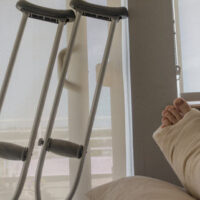Little Known Rules of Evidence That Could Hurt Your Case

When you are in court, any piece of information that helps your case will probably get in front of the jury as evidence in your case, right? Not so fast. In fact , there are complex rules of evidence, some of which can prevent a jury from ever seeing or considering evidence that you think could help your case.
Here are some lesser known rules of evidence that can prevent evidence from getting admitted in your personal injury trial
Fixing Problems – If a business or defendant fixes a prior problem, the fact that something was fixed or repaired cannot be used in trial. In other words if a company installs a sign, or a handrail, or takes some other measure to make an otherwise dangerous condition less (or not) dangerous, that cannot be used as evidence. Saying “they knew it was dangerous because they fixed or changed it” won’t be heard by the jury.
Offers to Settle – It is sometimes true that a defendant that offers to settle a case may be doing so because it believes that it may be liable for your injuries. However, the fact that the other side offered to settle, or the terms of the settlement, usually cannot be told to the jury. Saying “they knew they did something wrong because they offered to settle the case” usually won’t ever be heard by the jury.
Bad Acts – If a defendant did something bad in the past, or is just a bad person, that is usually inadmissible in trial. For example, you couldn’t use the fact that someone was arrested, or that they did something wrong or immoral in the past, or that they were kicked out of school 10 years ago, to demonstrate that they may have done something wrong (or that they may be lying) in your case.
You can use anything that shows bias in your case, as evidence. In other words, if a doctor says that you are not injured, you could use the fact that the doctor testifies for the insurance company all the time as evidence that the doctor’s testimony may be skewed or biased.
Insurance – The jury usually will never hear that the defendant is insured (although they may know from life experience that insurance exists). The defendant usually will be sued individually (unless you’re suing the insurance company directly). The jury is not allowed to know that there is insurance, or what the limits of insurance may be.
Anything that Could Unfairly Influence the Jury – Certainly, evidence you present is supposed to be in your favor, and against the other side. But the court can refuse to admit evidence that is too inflammatory or which is so prejudicial that it could cloud a jury’s good judgment.
Make sure you know what to expect at your personal injury trial, and that the evidence you need to win your case gets heard by the jury. Call the Knoxville personal injury attorneys at Fox, Farley, Willis & Burnette, today.
Resources:
law.cornell.edu/rules/fre/rule_408
law.cornell.edu/rules/fre/rule_407
